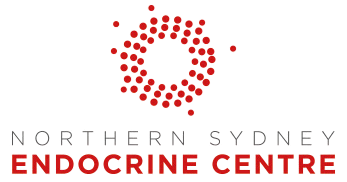What is the thyroid gland?
The thyroid is a butterfly-shaped gland at the base of the neck. As an endocrine gland, the thyroid makes thyroid hormones. Diseases of the thyroid can result in an over or under production of thyroid hormones. The thyroid can also develop nodules; an abnormal overgrowth of thyroid cells that can produce symptoms relating to compression or less commonly develop into thyroid cancer.
Types of thyroid conditions:
Underactive thyroid (hypothyroidism)
Hypothyroidism refers to a condition where the thyroid produces inadequate thyroid hormone for the requirements of the body. This is usually an autoimmune condition.
How is this hypothyroidism treated?
Treatment may require supplementation with thyroid hormones.
Overactive thyroid (hyperthyroidism)
Multiple disorders of the thyroid can result in an over-active thyroid. This can be due to autoimmune conditions such as Graves’ disease, inflammation such as thyroiditis, due to a genetic abnormality in a toxic adenoma or commonly with age as part of a multi nodular goitre.
How is hyperthyroidism treated?
The treatment depends on the cause of the hyperthyroidism and can range from medication, to radiation to surgery.
Thyroid nodules
Thyroid nodules are very common, especially in older women. Most are benign and will cause no harm, though some may progress to compress surrounding structures and less commonly become cancerous. Enlargement of nodules can result in difficulty swallowing (if compressing the oesophagus), difficulty speaking (if compressing the nerve to the vocal cords) or even breathing (if compressing the trachea).
How are thyroid nodules treated?
Thyroid nodules are best imaged with a thyroid ultrasound. Management is then based on the features of the nodule in addition to size. This predicts the risk of malignancy and determines the need for biopsy of the nodule (FNA).
Thyroid cancer
Thyroid cancer is a condition that is being increasingly diagnosed with imaging for other causes. It generally has a good prognosis depending on the type:
- Papillary cancer – the most common type of thyroid cancer and develops from the follicular cells of the thyroid
- Follicular cancer – the second most common type of thyroid cancer and also develops from the follicular cells of the thyroid.
- Medullary cancer – this is a rare type of thyroid cancer that develops from the C-cells of the thyroid. It is most often sporadic but can be linked to inherited cancer syndromes.
- Anaplastic cancer – this is a very rare form of thyroid cancer that is most often seen in older patients. It develops from follicular cells and usually has multiple genetic mutations that drive rapid progression.
How is thyroid cancer treated?
Thyroid cancer treatment has changed much over time. Treatment will depend on the type of cancer and risk of recurrence. For low risk cancers, this may involve active surveillance of the cancer over time. Higher risk cancers require initial surgery; the extent of which is dependent on the size of the cancer and extent of spread. In addition to surgery, radioactive iodine and rarely radiotherapy or systemic chemotherapy may be required for higher grades of cancer.

